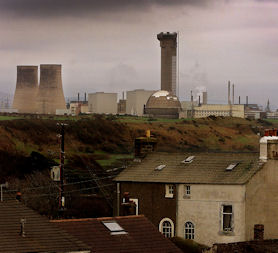Sellafield autopsies: inquiry findings announced today
Relatives of scores of former Sellafield nuclear plant workers will today learn if illegal autopsies were carried out after their loved ones died.
An inquiry, led by Michael Redfern QC was ordered in 2007 after it emerged that organs had been removed from at least 65 former Sellafield workers, in some cases without the permission of bereaved families.
Months after the inquiry began, it was expanded to include workers from nuclear establishments at Harwell in Oxfordshire, Aldermaston in Berkshire and Springfields near Preston in Lancashire. The inquiry has also reviewed a government-sponsored study of bones removed from 6072 individuals, mostly babies, spanning two decades.

Findings
Despite pressure from families, the inquiry was heard in private. Its main findings will be announced in the House of Commons this afternoon by the Energy Secretary Chris Huhne.
The inquiry is looking at all post-mortems carried out on former workers between 1962 and 1991. Records from British Nuclear Fuels, then operators of the plant, indicated that tests were performed on organs from at least 65 employees.
The records didn’t show who ordered the post-mortems, or whether consent was obtained from relatives.
Likewise, there is no evidence that consent was obtained for a different government-sponsored study to assess the potential health impacts of nuclear fallout from atomic bomb tests during the 1950s and 60s.
Scientists were looking for Strontium 90, which accumulates in bones, particularly those of babies and young children. Samples were taken from miscarried foetuses and babies who underwent autopsies in Glasgow and London between 1955 and 1973.
While the work was no secret, the results of the study were published in scientific journals, there is no evidence that consent was given for the any of the samples to be taken.
Human Tissue Act
Were the studies illegal? The Redfern inquiry hinges on interpretation of the relevant law at the time: the Human Tissue Act of 1961.
This allowed a pathologist to take an organ or tissue sample if they had “reason to believe” that the deceased had previously expressed no objection or that the surviving relatives wouldn’t object. Under the 1961 Act no consent was required only a lack of objection.
This law was replaced in 2004 following the organ removal scandal at Alder Hey Hospital in Liverpool. Since 2004 the express permission of relatives is required if a doctor wants to remove any tissue from a dead body.
-
Latest news
-
Taylor Swift’s new break-up album breaks records3m

-
NHS trust fined £200K for failings that led to death of two mental health patients3m

-
Sunak vows to end UK ‘sick note culture’ with benefit reform3m

-
‘Loose talk about using nuclear weapons is irresponsible and unacceptable’, says head of UN’s nuclear watchdog3m

-
‘There wasn’t an Israeli attack on Iran,’ says former adviser to Iran’s nuclear negotiations team7m

-




